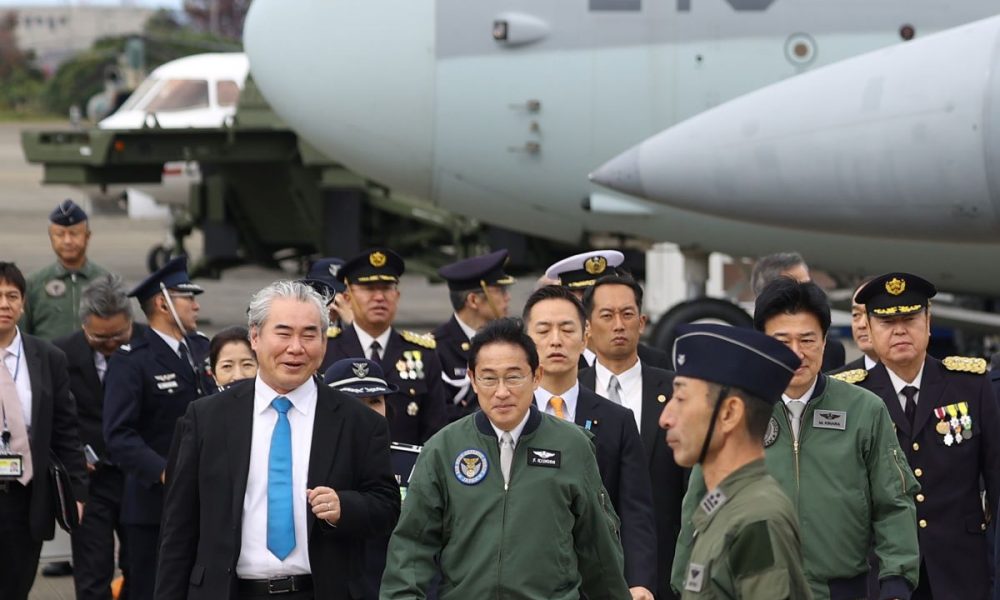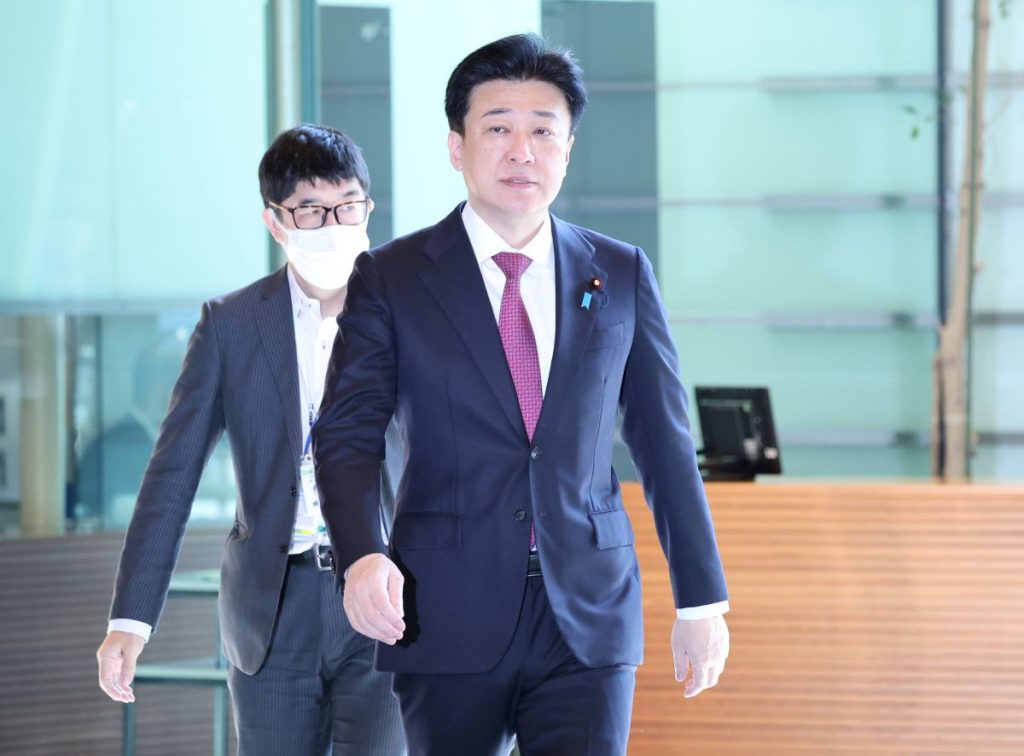Anyone who rants about the JSDF is losing the war before it even begins

Japan is taking defense more seriously than it did ten years ago. It plans to double defense spending and buy expensive equipment and weapons systems. But that will be of no use if Japan cannot recruit enough people for the Self-Defense Forces. In the last fiscal year, the JSDF missed its recruitment targets by 50%. This is a disaster, even with “normal” recruitment deficits that have persisted for many years.
A friend asked what this all means and why it is happening.

Occupation of the Japanese Self-Defense Forces
What are the consequences of the understaffing of the JSDF?
The Jieikan (members of the JSDF) are often overstretched because they don’t have enough people in their troops. I’ve heard this complaint more than once. It’s terrible for morale. It can also make training – and especially realistic training – difficult. Even carrying out necessary missions is difficult because there aren’t enough personnel. And let’s say you’re fighting a war and people are killed or injured. You need replacements. If you’re short on people to begin with, good luck replacing the injured.
Furthermore, since the JSDF is missing its recruitment targets – by 50% this year, 35% in previous years, and 20% for many years – it is an “older” force. The average age is actually quite high. War and military operations in general are the domain of young people. An “old” force will have problems.
How does the recruitment shortage affect the Maritime Self-Defense Force (MSDF), the Ground Self-Defense Force (GSDF) and the Air Self-Defense Force (ASDF)? Can you give us some examples?
Remember a year or two ago when the MSDF talked about building two ships specifically as AEGIS platforms? They had so few MSDF sailors that they talked about forcing a few hundred GSDF people to join the MSDF to man the ships.
And remember, ten years ago, when the MSDF was ordered to add several submarines to its fleet, there were serious concerns at the time about whether the MSDF would be able to find enough crew for the additional submarines.
The MSDF is probably only half the size it needs to be to carry out the missions required to defend Japan. They obviously cannot expand their size unless they have enough sailors.
When the GSDF sends units overseas, such as to California and Australia, to train, they are usually small detachments. Maybe a company-sized unit, sometimes a little larger. They should send larger units to give more troops experience and also to train officers in command and control and operations of larger units. But they don’t have enough people. So they usually send units that are too small for these exercises.
Note that the MSDF has two “large” amphibious ships. You really need at least three. While one is at sea, the other is preparing to leave, and the third is in port undergoing repairs and maintenance. When you only have two ships – and not enough sailors to man a third ship – you can see the problem. If you are at sea when you should be in port or resting, you are putting a strain on both the ship and the sailors.

Impact on Japan’s defense
Would the manpower shortage affect the government’s plans to strengthen Japan’s defense?
Yes. As I mentioned, if Japan, for example, needs a larger navy, how will it man its ships?
If GSDF wants additional missile batteries and air defense systems, it needs the personnel to operate them. So Japan can easily buy or build hardware. But it needs more (and enough) people to operate the systems.
And the ASDF? They need to be doubled in size to handle all the required missions.
And I say it again for all armed forces: what happens when there are losses in combat? How will they be replaced?

Respect and reward
Why has it become so difficult for Japan to recruit new staff?
The service conditions (wages, housing and benefits) for individual Jieikan and families are not very good. Also, keep in mind that the Japanese government and its elite class (politicians, civil servants, academics, most of the media, etc.) have shown no respect for the JSDF throughout its existence. Service in the JSDF is not a prestigious profession in much of Japan.
The people who join the military are real patriots. They don’t do it for the money. My many years of experience working closely with Jieikan show that their quality is excellent. They are on a par with US soldiers. But they are in a terrible system that treats them badly.
Jiekan are considered government employees — like the person in the district office who issues bicycle licenses. This is ridiculous. JSDF personnel are willing to die for the nation. They deserve better treatment and a little more respect. If you do that, maybe more people will join.
Look at the US system: the pay is very good and so is the housing. There is good healthcare for soldiers and their families. In addition, there is a “GI Bill” that provides lifelong benefits such as home loans, education, etc. The pension for 20 or more years of service is also quite good.
JSDF does not provide any of these benefits. Moreover, pensions are meager and far too low.
In addition, JSDF personnel have to prepare and pack all of their own things when they are transferred. And they often incur huge expenses. It’s crazy.
What are the government and the Ministry of Defense doing about it?
Not much, as far as I can tell. I suspect the increased defense spending won’t provide much more, if anything, for personnel. They’ll spend it all on hardware. That’s the wrong approach.
If you don’t take care of your personnel, you won’t have enough people to operate your hardware and soldier morale will suffer. That’s very unhealthy for any military.
The US military was in terrible shape in the 1970s until President Reagan came along and gave the military respect by praising it frequently and loudly. He also gave pay raises, improved housing, and more. This was essential to improving the US military. Japan should take advantage of the Americans’ experience.
Overcoming the age problem
How about raising the retirement age?
I suppose the Ministry of Defense has done that, but it has not helped much. They need more young people to join the JSDF. That is the main problem. The JSDF does not need more Subscribe to (old man).
Can you summarize the Department of Defense’s key recruiting efforts? Are they working?
I honestly cannot say that the Ministry of Defense is doing anything to attract more recruits. Every year I read the Ministry of Defense white papers hoping that they will give preference to JSDF personnel for better service conditions and also for basic respect. They never do.
Is this the Ministry of Defense’s fault? Partly. Many civilian employees in the ministry’s internal office don’t seem to like the uniformed soldiers very much. Instead, they see their role as “keeping the JSDF on a leash.” This is very strange.
Outside the Ministry of Defense, the civilians who call the shots in Japan are largely to blame for not appreciating the JSDF and leaving the country vulnerable. The Japanese government spends so much money on useless things that it could easily afford to spend it on improving the lives of the Jieikan – and making the service more attractive.
I would note that the US needs a much more capable JSDF to operate alongside it, so Japan’s failure to address its recruitment shortcomings is hurting the quality and capability of the JSDF, making the JSDF (and Japan) a much less useful ally and partner to the US military than it needs to be.
In other words, the only people who are happy with this situation live in Beijing.
RELATED:
Author: Grant Newsham
Grant Newsham is a retired US Navy officer and former US diplomat. He is the author of the book “When China Attacks: A Warning to America.”



